Information Literacy Process
In 2021, the NSW Department of Education produced a statement about The Information Process and the Information Fluency Framework which now form the basis of the teaching role of the teacher librarian in NSW schools. Information fluency is described as “the ability to critically think while engaging with, creating and utilising information and technology, regardless of the information platform or medium.”
The IFF is based on documents created by the NSW DoE in 1987 but has also expanded on these to match 21st education and expectations. Those original documents which also provided the basis for my interpretation of the ILP below but I have included the extra steps of Interpreting and Reflecting.
Appendix B of the Information Fluency Framework provides a guide to the expected outcomes for each stage of education recognised by the NSW Department of Education.
THE INFORMATION LITERACY PROCESS
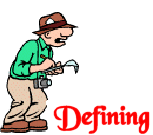 |
Defining
What is the problem I have to solve?
-
What are the key ideas, words and questions that define the task?
- Am I being asked to investigate, explain, describe, analyse or persuade?
- How will that shape the information I need and my response?
-
What information do I need?
-
What do I already know about the topic/issue?
-
What more do I need to find out?
-
What focus questions can I develop to guide my information search and my response?
- Are those questions purposeful and effective for solving my information need?
-
What form does my response need to take?
-
Is its purpose to inform, explain, describe, analyse or persuade?
- What will be the best way to conduct this investigation?
- What is the timeframe for the response?
|
 |
Locating
Where can I find the information I need?
-
Which sources would best meet my needs?
- Who can help me find the information I need?
- Should I
- use primary or secondary sources
- conduct interviews
- collect data through surveys
- undertake observations and/or experiments
- examine images such as photographs, maps, and charts
- rely on print or electronic media sources
- Should the majority of the resources be factual or based on opinions and perspectives?
- How can I identify the purpose of the resource?
-
Where can I find those resources?
-
Do I need help to find those resources?
-
How can I ensure that the source is authoritative, accurate, current, objective and relevant?
- Does the resource suit the purpose of my information need and my response?
- How will I cross-check my information to confirm its accuracy?
|
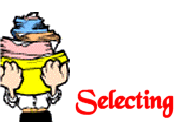 |
Selecting
How can I search these resources effectively?
-
Which main ideas am I looking for?
-
Are there any cues and clues to help me navigate the resource such as a contents page or a menu?
-
Which search terms will be the most effective for locating the relevant information?
- How can I use headings and topic sentences to identify relevant information?
-
How will I record my information so that I can use my own words to present it?
-
Are there any critical quotes that I can use to give my work authority?
-
What examples and explanations can I provide as evidence for my argument?
- Are the ideas, information and images attributed to their sources so that I know the information is authoritative?
- Are there references or links to other resources so I can cross-check the information or learn more about the topic?
- Does the information I have selected address the task set?
-
How will I credit my sources?
|
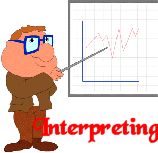 |
Interpreting
What is this information telling me?
- Is this information a factual report or an opinion piece?
- What is the author’s purpose for writing it?
- How does this information/opinion compare to other views on the same topic?
- What cultural, social, ethical, religious or economic beliefs, attitudes and assumptions underpin the information?
- What local, national or global factors influence or impact the information?
- What evidence do I have to confirm this such as
- Is it designed to recount, persuade, inform or entertain?
- Who has taken responsibility for this information?
- Is that person/organisation an authoritative source?
- From whose perspective has it been written?
- Do they have a vested interest in this cause?
- What view of the world is it presenting?
- Is it satirical or a parody?
- Has it been written to confirm, challenge or change my opinions?
- Are the arguments supported by credible evidence?
- Is there an underlying message being pushed?
- Have alternative perspectives been offered without bias?
- Whose voice is not heard?
- Have I checked the source for accuracy, authority, currency, objectivity and relevance?
- If it is an opinion piece, am I prepared to consider the author’s views and perspectives?
- How does it confirm, challenge or change what I already know and believe?
- Are there alternative suggestions, solutions or perspectives that I need to consider?
- How can I connect what I already know with what I have learned?
- Does this resource still meet the purpose of my information need and my response?
|
 |
Organising
How can I organise my information so it is connected, cohesive and coherent and I understand it better?
-
Would a graphic organiser be an appropriate tool?
-
Does the information need to be in a special order?
-
How can I use headings and images to make my message clearer?
-
Is my information expressed in my own words?
-
Is my response sensible, logical, cohesive and coherent?
-
Is it arranged in paragraphs with clear topic sentences and supporting details and evidence?
-
Can I summarise some of my information in a table, chart or graph?
- Are the accompanying illustrations relevant to the information?
- Have I explained their purpose?
- Is there an opposing perspective I have to consider and include?
- Have I answered the focus questions and addressed the task set?
- Is there a rubric to guide the standard of content and format?
- Do I need more information?
- Have i acknowledged the sources I’ve used?
- Have I collated a Reference List in the required format?
- Are there other cues and clues such as contents, index, and glossary I need to include to help other navigate my presentation?
|
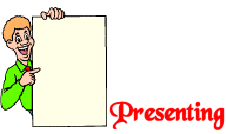 |
Presenting
How can I share my information with others?
-
What is the purpose of the presentation – to inform, explain, analyse or persuade?
-
How will this shape the nature of my presentation?
-
Who would be interested in this information?
- Do I need a public or personal audience?
-
What are the needs of that audience?
- What beliefs, attitudes, and feelings of my audience do I need to consider?
-
What is the best format to demonstrate my learning and meet those needs?
-
What are the essential elements of this format/medium that I need to include?
- Are the content and purpose of my message clear and not obscured by eye-candy such as fancy fonts and intrusive backgrounds?
- Do the images I’ve used enrich and enhance the main message?
- Have i demonstrated my understanding of the ethical use of the ideas, images and information of others in my presentation?
-
Have I included everything I want to share?
- Have I considered various points of view about this topic?
- Have I constructed my ideas and arguments concisely and with clarity?
- Have I offered a balanced argument supported by evidence and examples?
- How is my audience likely to respond to the ideas and information in my presentation?
- If I were presented with this information or perspective, how would I respond?
- How can I present it with confidence and competence?
|
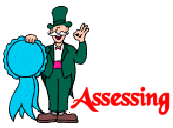 |
Assessing
What have I learned from this?
-
Did I address the task and answer the questions?
-
Did I use the rubric to guide my response well?
-
How have my skills improved?
-
Which parts did I do really well?
-
Which parts would I change if I did the assignment again?
-
Which parts do I need support with in the future?
-
How well did I contribute to the work of my group?
- Did I acknowledge, accept and adapt to the roles, rights and responsibilities of the group members?
- How well did I negotiate differing opinions within my group?
-
Did I manage my time well?
|
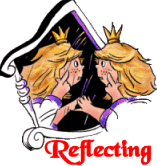 |
Reflecting
Where to from here?
- How does what I have learned connect with what I already knew?
- How have my knowledge and understanding been confirmed, challenged or changed?
- How does what I have learned help me make sense of the world?
- Now that I know this, what conclusions can I draw?
- Now that I know this, how can I use it?
- Now that I know this, what action should I take?
- Now that I know this, what new questions do I have?
- Now that I know this, how can I apply it to a new situation?
- What have I learned that I need to remember for
- a short time
- a longer time
- the rest of my life?
|
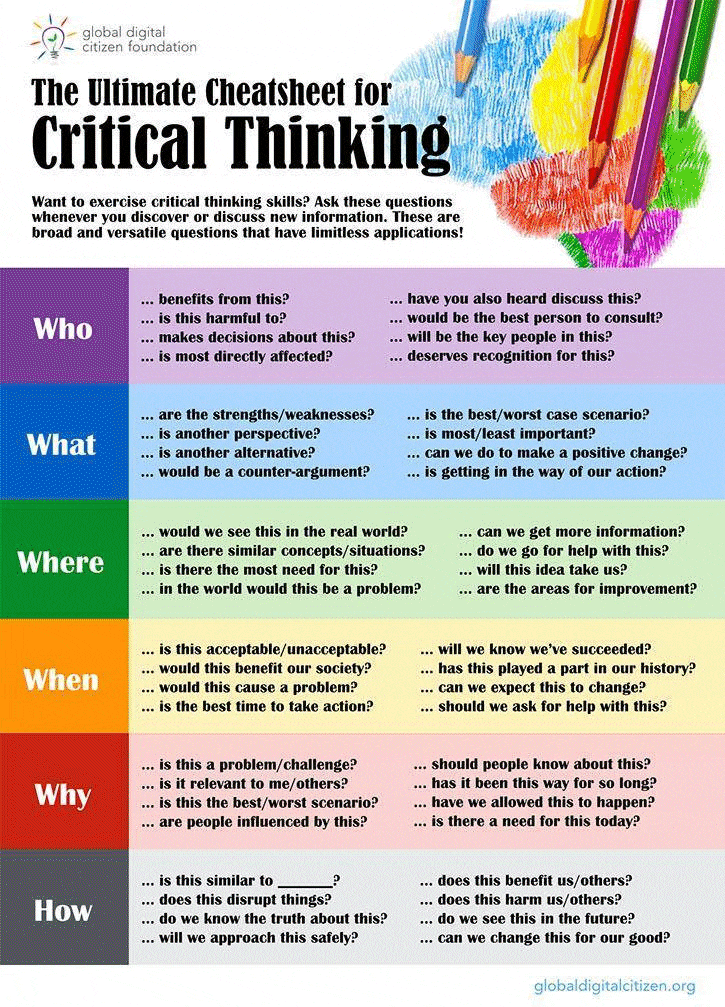
Questions for Critical Thinking
Read about the information literacy hat
A pdf version of this page is available at il_process_summary_2015
A rubric outlining a progression of development is available at info_lit_rubric
Barbara Braxton,
M.Ed.(TL), M.App.Sci.(TL), M.I.S. (Children’s Services)
500 Hats https://500hats.edublogs.org/
February 2014
Updated January 2022

The Information Literacy Process by Barbara Braxton is licensed under a Creative Commons Attribution-NonCommercial-ShareAlike 3.0 Unported License.











Thanks Barbara,
just following your comments on the nswtl site regarding Helen Fuller’s request for print information on the Information literacy process. I too will be doing something like her in my school this year so seeing how you approach it is great.
Barbara,
Thank you so much for posting this. It is like a curriculum template for teaching these skills. Thanks for continuing to work for our cause.
This may be a second post as the website rejected my email address.
Many thanks. I appreciate your time in developing this for everyone to use.
Thanks Barbara. This is great. Thanks for sharing and supporting Teacher Librarians everywhere.
I love how you have put it all together in a question style. It’s very clear.
Thank you so much for your time and effort. This is certainly a great help.
Thanks Barbara, this is very clearly set out and user friendly. Thank you also for your constant support on the TL network.
Thank you – a great tool for programming!
Inquiry based!! Love it 🙂
Thanks so much yet again for your excellent quality resources and support.
Thank you so much for your tireless wonderful work Barbara! This is great!
Many thanks Barbara. I love reading your posts on OZTLNeT each week and appreciate your commitment to the TL cause!
Thankyou Barbara for all your time and effort.
You are an Inspiration!
Thank you Barbara for the precious info you share with us.
Thanks for the interesting info. Really appreciate it.
thank you
thank you
thank you
thank you!
Thanks
thank you Barbara
Thank you
Thanks it was very useful
It was very useful thaks alot